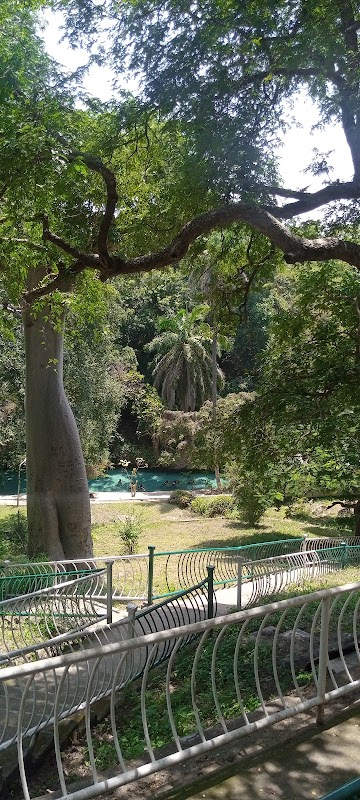
Experience the vibrant Sallah celebrations in Bauchi, where centuries-old Islamic traditions come alive through prayer, feasting, and community spirit. This guide offers practical tips and cultural insights to help you navigate and appreciate one of Nigeria’s most dynamic religious festivals.
Dress for Comfort and Respect
Wear lightweight, breathable clothing suited for warm weather while respecting local customs by opting for modest attire during the celebrations.
Hydrate Frequently
The temperature can soar during the day, especially in the urban hub. Carry water and drink regularly to maintain energy throughout festivities.
Use Cash for Transactions
Mobile payments may be unreliable during peak celebration days. Keep sufficient cash handy for market purchases and donations.
Plan Accommodations in Advance
Hotels and guesthouses in Bauchi book up quickly around Sallah. Secure lodging early to avoid last-minute complications.
Sallah Celebrations in Bauchi: A Cultural Adventure in Nigeria’s Heartland
Every year, Bauchi city stands at the brink of transformation as the Sallah celebrations sweep through its streets. This event—marking the end of Ramadan with Eid al-Fitr and the culmination of the Hajj pilgrimage with Eid al-Adha—is a vibrant intersection of deep cultural reverence and spirited communal joy. Walking through Bauchi during Sallah means stepping into a living narrative of tradition fiercely alive, where the city’s rhythm is governed by drumming, prayers, and the crackle of grilling meats wafting over the marketplace.
The air holds an electric anticipation; locals don fresh attire with embroidered caps and flowing robes, signaling renewal and unity. Markets sparkle with colorful textiles, aromatic spices, and fresh offerings, daring you to taste the richness of Bauchi’s flavors. The celebrations center around livestock sacrifices, communal feasting, and generous almsgiving, practices rooted in both faith and practical community support.
For a visitor, Sallah in Bauchi offers more than cultural exhibition—it's a tactile immersion into customs shaped by centuries. The city’s topography, a mix of gentle hills and flat urban areas, plays its part, gathering crowds in open spaces like the Bauchi Central Mosque’s compound, where congregational prayers command the dawn and late afternoon. Navigating the festival’s pulse requires mindfulness: the crowds swell, the heat rises, and the pace quickens. Hydrate often and wear breathable fabrics; sturdy footwear is advised as the uneven streets demand steady footing.
Locals relish the chance to reconnect and express hospitality; invitations to share plates of tuwo dawa with miyan kuka are common—and wise to accept. For photographers and cultural enthusiasts, the best vantage points are the city squares and mosque courtyards, where sunlight lances sharply through dust and laughter ripples loud and clear.
Planning a trip to Bauchi for Sallah means syncing with both the calendar and the cadence of local life. The celebrations typically last for two to three days following the sighting of the moon, usually in April or July depending on the festival. Arrive early to secure accommodation in Bauchi city, the ideal base for experiencing both religious ceremonies and urban vibrancy. Bring cash, as electronic payments remain spotty during these communal celebrations.
Sallah in Bauchi is a reminder that adventure doesn’t always cling to trails or wildlands—it thrives in people and their enduring traditions. This festival dares you to engage respectfully and openly, to witness faith and festivity blending into a compelling, living journey. Prepare well, tread lightly, and you’ll leave with more than souvenirs—you’ll carry back stories forged in the heart of Nigeria’s northeastern pulse.
Nearby Trips
All Adventures
Boat Charters
Water Activities
Adventures near Bauchi, Bauchi
Discover the unique and memorable adventures that make Bauchi, Bauchi special.
Frequently Asked Questions
When exactly do Sallah celebrations take place in Bauchi?
Sallah celebrations in Bauchi occur twice yearly: Eid al-Fitr follows the end of Ramadan (usually around April) and Eid al-Adha coincides with the Hajj pilgrimage (typically in July). The exact dates depend on lunar observations.
Are tourists welcome to participate in Sallah festivities?
Yes, visitors are generally welcomed but should observe respect for religious practices, dress modestly, and seek permission before photographing people or ceremonies.
What is unique about Bauchi’s way of celebrating Sallah compared to other Nigerian cities?
Bauchi uniquely blends Hausa-Fulani Muslim traditions with local cultural expressions, featuring distinct communal feasts and livestock sacrifices that underscore its reputation as a religious and cultural center in northeastern Nigeria.
Is it safe to travel to Bauchi during Sallah?
While the festival itself is a time of peace and communal gathering, travelers should stay informed about regional security updates and follow local advice to ensure safe travel.
What local foods should I try during Sallah in Bauchi?
Be sure to enjoy tuwo dawa (a millet-based staple), miyan kuka (baobab leaf soup), and grilled meats prepared fresh during the feasts, offering authentic taste sensations.
Are there any important environmental practices to keep in mind during the festival?
Visitors should avoid littering during crowded events, use designated waste bins, and respect communal spaces as the community emphasizes cleanliness and preservation, especially during religious occasions.
Recommended Gear
Breathable Cotton Clothing
Allows comfort in Bauchi’s warm climate while respecting cultural norms for modest dress.
Comfortable Walking Shoes
Sturdy shoes help navigate uneven streets and crowded marketplaces safely.
Reusable Water Bottle
Necessary for staying hydrated during long outdoor ceremonies and high temperatures.
Sunscreen and Hat
Protects against intense sun exposure during midday celebrations.
Local Insights
Hidden Gems
- "The lesser-known Dindima Hill viewpoint offers panoramic cityscape views and a quiet escape from the busy festival zones."
- "Kafin Madaki market’s early morning animal trade provides an authentic peek into the livestock culture central to Eid al-Adha."
Wildlife
- "Watch for endemic bird species like the Red-winged Starling and Laughing Dove around Bauchi’s urban green spaces."
- "Monitor areas near Yankari National Park for traces of migratory wildlife influenced by the festival season."
History
"Bauchi’s Sallah celebrations trace back centuries, rooted in the spread of Islam through the Sokoto Caliphate. The city evolved as a religious hub, preserving rituals tied to both faith and communal solidarity."
